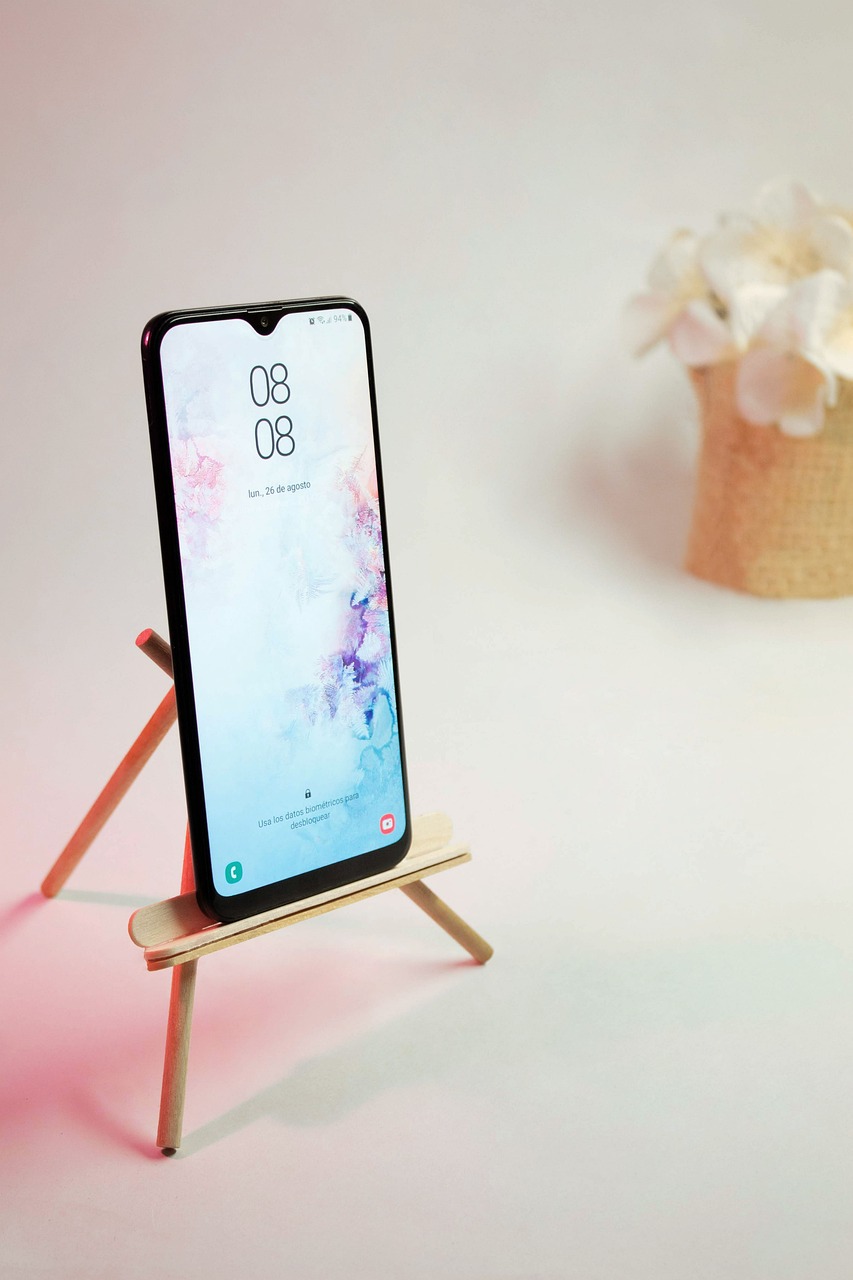Mobile technology future is growing fast. We use phones for almost everything- calls, photos, banking, health tracking, and even work. But what is coming next? This blog takes a deep look at what the future holds for mobile technology.
Table of Contents
How Will the Phone Change in the Future?
Phones are becoming smarter every year. In the mobile technology future, phones may not look like what we use now. They could be thinner, lighter, and even foldable. Some phones may use holograms to show 3D images in the air.
Phones could also control more things around us. Imagine turning off the lights or locking the door using your phone.
We may even stop touching our phones. Gestures and voice might take over. You could wave your hand or talk to perform tasks.
Which Is the Latest Technology in Mobile?
The most recent technology in mobile is 5 G. It offers super-fast internet and better connectivity. It lets you stream videos, play games, and download files faster than ever.
Another new feature is foldable screens. You can fold your phone to make it smaller or open it like a tablet.
We also have eSIM cards. These are digital SIMs. You don’t need a physical chip anymore.
What Is the Future of Mobile Computing?
Phones will become like small computers. They’ll do tasks we now use laptops for. Thanks to the cloud, files and apps will be easily accessible from anywhere.
Edge computing will make phones faster. It allows data to be processed closer to the device.
AI will also make phones smarter. Your phone will learn your habits and suggest things before you even ask.
What Is the Future of Phones in 2050?
Phones in 2050 may not look like phones at all. They could be part of your body may be in your glasses or under your skin.
We might talk to virtual assistants that feel like real people. You could also control devices with your mind by using brain-computer interfaces.

The Future of Mobile
Mobile technology future will be in everything. Phones will help manage homes, cars, and even cities. This is the idea behind smart cities.
Our phones will be part of our daily life in new ways. They’ll help with travel, shopping, and health monitoring.
What Is the Next Generation Mobile Technology?
6G is coming after 5 G. It will offer even faster speeds. Some experts say it will be 100 times faster than 5 G.
New phones will also include AI chips, better security, and smarter cameras.
Future phones may also use quantum tech to speed up data processing.
What Technology Will Replace Phones?
Phones might be replaced by wearables like smart glasses or smart contact lenses.
We may also use devices inside the body. These could show messages directly into your eyes or play sounds into your ears.
One day, we may use thoughts to control devices, making screens unnecessary.
What Are the Best Uses of Mobile Technology?
Mobile tech is useful in many ways:
- Health: Track heart rate, sleep, and steps
- Education: Learn from anywhere
- Finance: Make payments and check your balance
- Work: Join meetings and share files
- Entertainment: Watch videos, play games, and listen to music
How Many Types of Mobile Technology Are There?
Mobile technology comes in different forms:
- Voice and messaging services
- Internet access (3G, 4G, 5G)
- Bluetooth and Wi-Fi
- GPS for location tracking
- AI-based smart tools
- Cognitive mobile tech, which learns from user behavior
How Many Years Will a Phone Last?
Most phones last 3 to 5 years. But future phones could last longer with better materials.
Phones with modular parts will let you replace old pieces instead of buying a new one.
Battery tech will also improve, reducing wear and tear.

What Will the Future Look Like with Phones?
Phones will be more connected to everything. Your fridge, car, and lights may all be linked to your phone.
You may carry fewer things. Your phone might act as your wallet, keys, ID, and more.
Phones will also learn to adjust to your lifestyle, making life easier.
How Technology Can Change Life?
Tech helps us save time. With mobile devices, we can work, learn, and shop without leaving home.
It connects us with loved ones and helps us stay informed.
Phones will offer new ways to live smarter and safer.
What Technology Is Trending Now?
Popular tech trends today include:
- Foldable phones
- AI assistants like Google Assistant or Siri
- Augmented Reality (AR) apps
- Mobile health trackers
- Facial recognition and biometrics
What Technology Is Best in the Future?
The best future tech will:
- Be energy-efficient
- Use clean materials
- Work fast
- Be easy to use
- Protect your privacy
Examples of Mobile Technology
- Smartphones
- Tablets
- Smartwatches
- Fitness bands
- Wireless earbuds
- GPS devices
Creative Mobile Technology
Creativity on phones is growing. You can now:
- Make videos with editing apps
- Draw and design on tablets
- Use AR for gaming and art
- Play music with mobile instruments
Wave Mobile Technology
Millimeter-wave technology in 5G gives faster speeds over short distances.
This is helpful for busy places like airports, stadiums, and cities.
It supports high-quality streaming and low-latency gaming.
Cognitive Mobile Technology
Phones will get smarter. They’ll understand what you want before you ask.
This is called cognitive mobile tech. It uses AI to learn your habits and make decisions.
For example, it might silence your phone during meetings or offer directions on your commute.
Future Trends in Mobile Technology

The Rise of 5G and Its Impact on Connectivity
5G makes everything faster. You’ll download movies in seconds and make clearer video calls.
It also helps connect smart devices at home and in cities.
Artificial Intelligence: The Brain Behind Mobile Innovation
AI powers smart assistants, photo editing, and voice recognition.
Phones will think and act more like humans.
Foldable and Flexible Screens: The Next Big Trend?
Phones can now bend and fold. This gives you more screen into a small device.
It’s useful for gaming, multitasking, and watching videos.
The Role of Augmented and Virtual Reality in Mobile Technology
AR and VR make experiences feel real. You can see furniture in your room before buying or play 3D games.
This tech is also useful in schools and offices.
The Rise of Wearable and Embedded Mobile Tech
Smartwatches, rings, and glasses are getting popular.
In the future, we may have chips under our skin that act like phones.
Security and Privacy in the Mobile Future
Security is key. Biometric locks like fingerprints and face scans are now common.
Data protection will become even stronger to protect your personal information.
Battery Life and Charging Innovations
Fast charging is now standard. Future batteries will charge in minutes and last for days.
Wireless and solar charging may also become common.
The Role of Mobile Technology in Smart Cities and IoT
Your phone could control traffic lights, parking, and power in smart cities.
This makes life easier, safer, and greener.
What to Expect in the Coming Years
- Phones that respond to your emotions
- Touchless interfaces
- Devices with longer life and less waste
- Total smart home and city integration
- Personalized services through AI

Impact of 5G Technology on Mobile Phones
5G helps with better streaming, gaming, and real-time apps.
It allows for self-driving cars, remote surgery, and smart farming.
Demand for Augmented Reality Experiences
AR is in demand for games, education, and shopping.
You can try clothes or see products in your home before buying.
Advanced Charging Technologies to Become the New Normal
We’ll say goodbye to waiting hours for phones to charge.
New batteries will charge in minutes. Some will charge by using air or light.
Eco-Friendly Smartphones
New phones will use recycled parts.
Companies are working to reduce e-waste and their carbon footprint.
Foldables Are the Future
Foldable screens give more space and flexibility.
They’re great for work, video calls, and watching shows.
What Are the Advantages and Disadvantages of Mobile Technology?
Advantages:
- Easy communication
- Access to information
- Helps in work, education, and health
Disadvantages:
- Eye strain and health risks
- Privacy issues
- Overuse and addiction
Conclusion:
Mobile technology is changing fast. It’s becoming more useful, smarter, and part of daily life.
The future will bring phones that are more advanced, eco-friendly, and helpful than ever.
Frequently Asked Questions
What Will Be Invented by 2050?
By 2050, we may have:
- Thought-controlled devices
- Holographic video calls
- AI assistants that talk and act like humans
- Universal language translators
What Is the History of Mobile Technology?
Mobile phones started in the 1980s. They were large and heavy.
Today, they are slim, fast, and smart. In just 40 years, phones have changed everything.
What Is the Future of Android?
Android will get better with AI. It will predict your needs and give faster answers.
Security will be stronger. Updates will happen faster and run in the background.
Android will also support more devices like TVs, watches, and cars.
What Is the Future of Big Data Technology?
Big data will change mobile use. Your phone will learn what you like and offer personalized results.
Apps will use data to help you faster. For example, a food app could suggest meals based on your past orders.
Real-time updates will also get better. You’ll get alerts and tips right when you need them.
Which Mobile Is Best in the Future?
The best phones in the future will have features like:
- Long battery life
- Fast charging
- Sustainable design
- Foldable or flexible screens
- Powerful processors
Phones like this will give users great performance and help the planet, too.





http://toyota-porte.ru/forums/index.php?autocom=gallery&req=si&img=3237